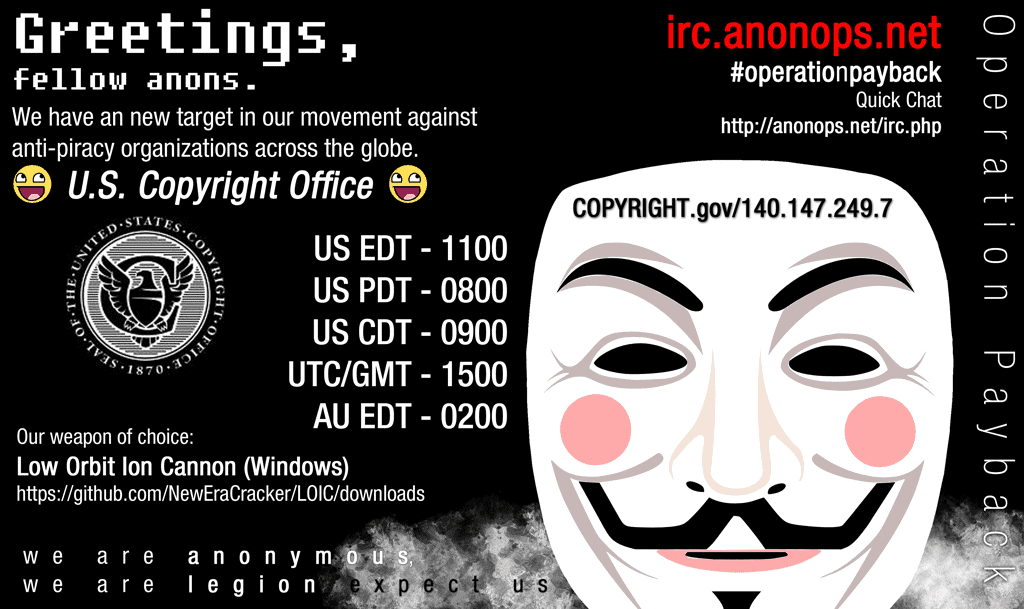Anonymous, which shortly knocked the Federal Bureau of Investigation and Department of Justice sites offline in retaliation for the United States’ closing of the file-sharing website Megaupload, is a shady group of worldwide hackers with zero central hierarchy.
The temporary crippling of the United States government websites is the most recent effort by hacktivists, who are accountable for dozens of online assaults over the past couple of years. The FBI and Department of Justice websites returned within a couple of hours. According to the computer security department, Anonymous doesn’t have a primal authority but operates with a “hive mind mentality,” concurring on objectives in discussions in IRC channels and striking simultaneously.
Anonymous, active @anonops, one of the several Twitter accounts utilized by the group, laid claim that Thursday’s assaults on the Department of Justice and Federal Bureau of Investigation websites were their largest ever, involving over 5,600 people.
The distributed denial of service (DDoS) assaults were similar to those arranged by Anonymous in late 2010 on the Amazon, Visa, MasterCard and PayPal websites in revenge for their conclusions to break off with WikiLeaks.
In a typical DDoS attack, a multitude of computers are commanded to at the same time, visit a website, consuming its hosts, slowing down service or knocking it offline entirely.
The defense of WikiLeaks by Anonymous comprised an extension of “Operation Payback,” a cause that began on the online messageboard 4Chan in September 2010.
Operation Payback involved cyber attacks on the websites of the Motion Picture Association of America (MPAA), Recording Industry Association of America (RIAA), and others over their robust copyright protection attempts.
“Operation Payback represents free speech and no censorship,” an Anonymous member told AFP in an internet chat at the time.
Anonymous also targeted the RIAA and MPAA websites on Thursday in retaliation for the US Government closing of Megaupload.com, which the US government accused of massive infringement of copyright.
Beyond DDoS attacks, Anonymous has also accepted acknowledgment for many other hacks, most recently the theft of e-mails and credit card data for subscribers to the United States intelligence analysis business firm Stratfor.
Anonymous alleged the Stratfor hack constituted in retaliation for the criminal prosecution of Bradley Manning, the United States Army private accused of leaking more than 700,000 U.S. government written documents to WikiLeaks, among the most severe intelligence breaches in United States history.
Several Anonymous members have comprised in the UK and the US, but law enforcement agencies have stressed that it’s hard to decipher savvy computer users who know how to conceal their tracks.
In September, the Federal Bureau of Investigation apprehended a member of the Anonymous-affiliated Lulz Security in association with a crippling cyberattack on Japanese electronic heavyweight Sony’s online operations.
Sony’s PlayStation Network, Qriocity music streaming service, and Sony Online Entertainment were targeted by hackers first in April of last year.
Approximately 100 million accounts were affected and it took Sony months to entirely restore its online services.
The Sony hacks were both claimed and denied by Anonymous — a not occasional happening with a group that does not address a single voice.







i love your blog, i have it in my rss reader and always like new things coming up from it.
nice post.http://www.camisaxadrezmasculina.com